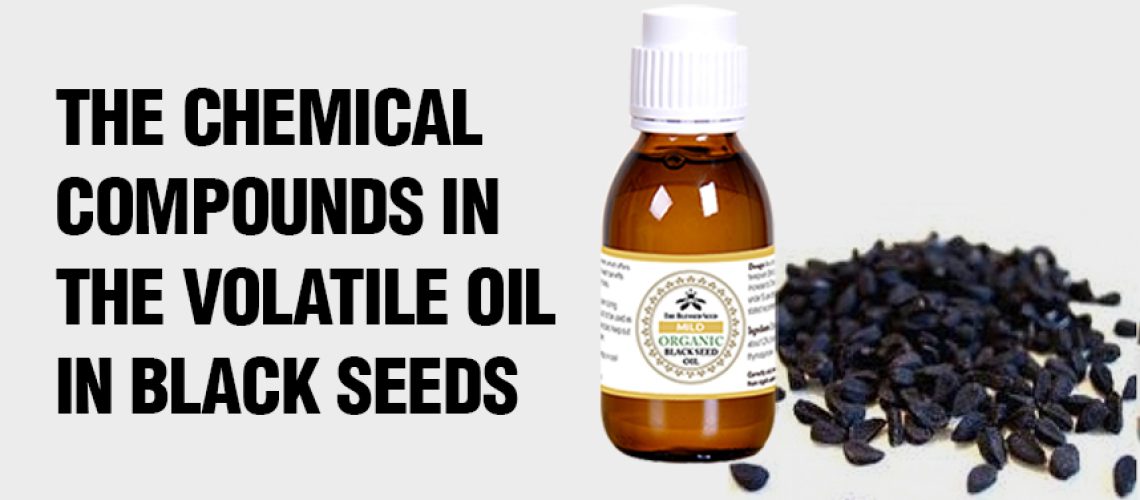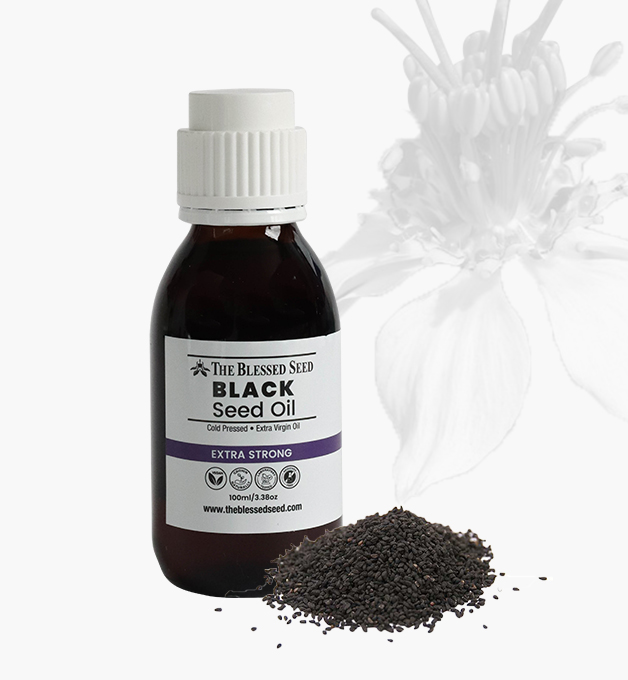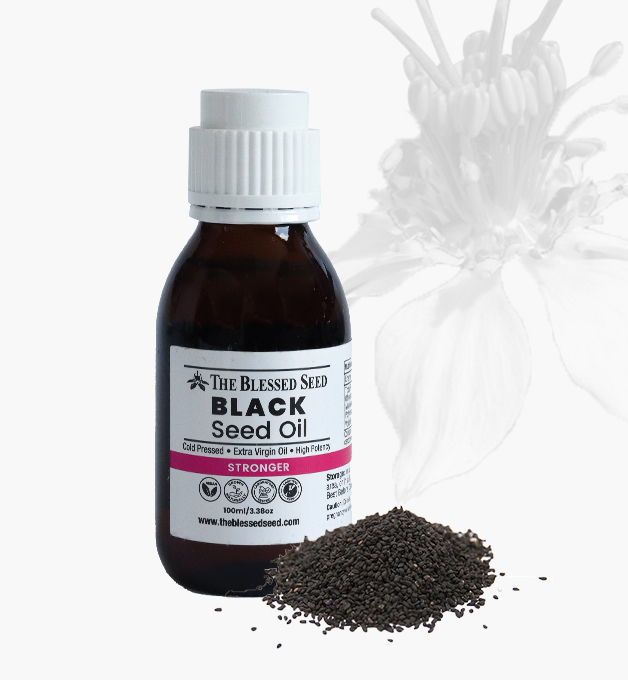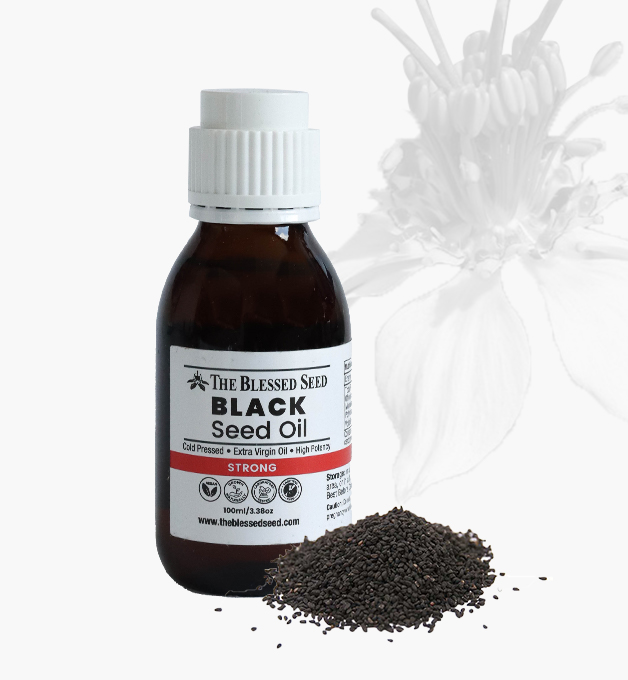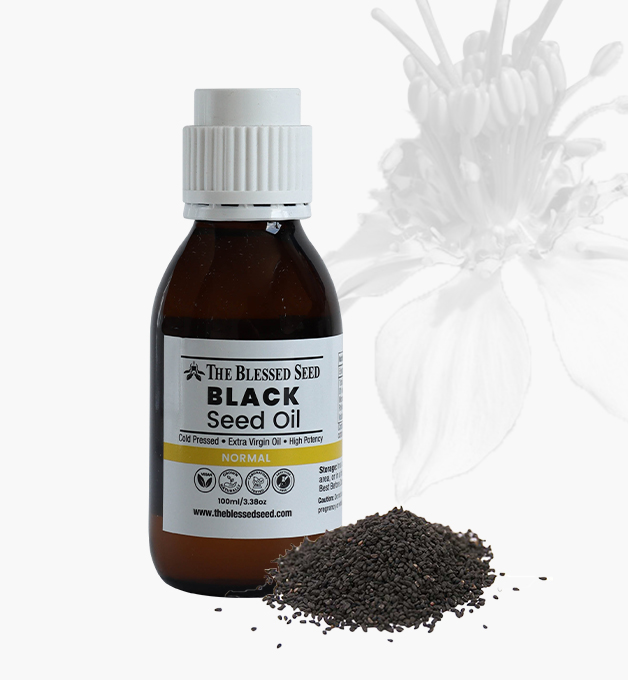In Part 1 of this series, we examined the effects that cymene, pinene, and carbony have on the human body. These are all chemical compounds found in the volatile oils of black seeds.
In the second part of this series, we’re going to look at the remaining four compounds that the volatile oil contains, so you understand the important role that the volume of volatile oil has on the effectiveness of your black seed oil.
Carvone
Anybody who has a baby that struggles with colic knows how much pain the condition can cause. It leads to a build-up of wind, or some other obstruction, in the intestines that can lead to severe pain in the abdomen.
Carvone is most highly-regarded for its ability to clear up colic and, to put it bluntly, help people to experience the flatulence needed to alleviate the condition.
However, there’s also some evidence to suggest that it works as a mild expectorant. This makes it useful in the treatment of coughs, asthma, and other conditions that require the expulsion of sputum. Moreover, when used as part of an essential oil, carvone has relaxing properties that may help you to deal with the burden of emotional exhaustion and stress.
Limonene
Limonene is perhaps best known for its ability to deal with gallstones. One study discovered that the compound aided in the dissolving of gallstones in about half of patients that it was tested on.
However, limonene has a lot of other healing properties that are less obvious. One study found that it’s effective in the treatment of heartburn, while another found that it shares similar pain-relieving qualities to several of the other compounds found in black seed’s volatile oils. It appears to be particularly effective in helping women to deal with labour pains.
Finally, there’s some evidence to suggest that it may improve the effectiveness of some anti-cancer medications.
Nigellon Semohiprepinon
Nigellon semohiprepinon is the compound that lends itself to the Nigella Sativa name that some people prefer to use for black seed.
It proves particularly effective for those who suffer from bronchial issues. When rubbed on the chest, or inhaled, it makes the bronchi larger. This helps in the dissolution of cramps, in addition to alleviating the symptoms of bronchial asthma.
It’s also believed they have positive effects for those with allergies due to its ability to slow the release of histamine into the bloodstream.
Thymoquinone
One of the main compounds in black seed’s volatile oil, thymoquinone is a pain reliever that can also slow the progress of infections.
However, studies have shown that its effects may be even more far-reaching than that. There’s some evidence to suggest that thymoquinone is effective as a tumour combater and that it has an antioxidant effect. This means that it’s capable of combating the free radicals that cause so many problems for our bodies as we age. There’s also some evidence to suggest that it has anti-inflammatory effects.
The Final Word
The levels of volatile oils in black seed products play a huge role in how effective they are. This two-part series has highlighted the chemical compounds that play an active healing role as part of these volatile oils.
At The Blessed Seed, we want you to get as much as possible from your black seed oil products. That’s why we offer a Strong Black Seed Oil that has the highest volume of volatile oils of any product on the market.
